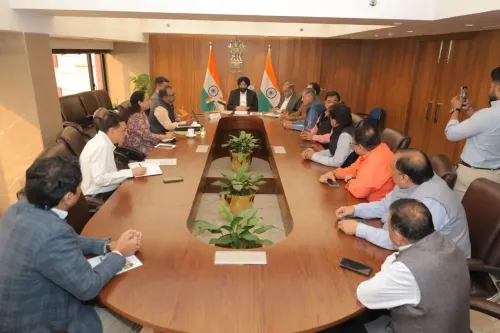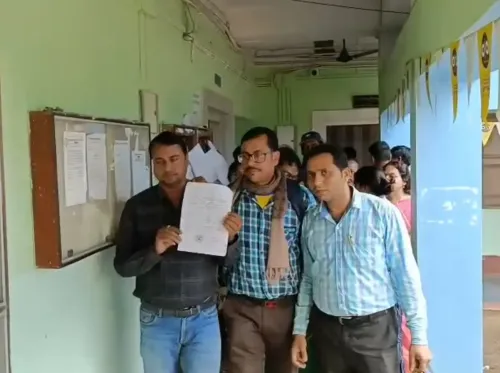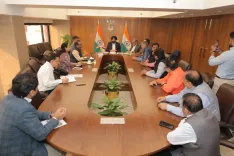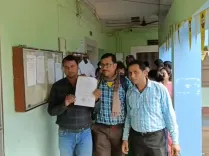How are POS Machines and Micro ATMs Transforming Agriculture in J&K?
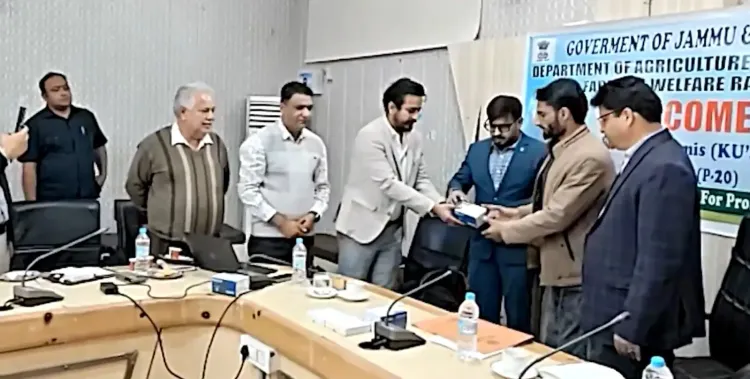
Synopsis
Key Takeaways
- Digital Empowerment: Introduction of POS machines and Micro ATMs.
- Access to Services: Facilitation of financial transactions and government schemes.
- Equity in Benefits: Focus on inclusive growth for border area farmers.
- Job Creation: Employment opportunities for marginal families.
- Comprehensive Development: Integration of horticulture, agriculture, and livestock sectors.
Rajouri, Nov 13 (NationPress) In a significant advancement towards the digital and technical empowerment of the farming community, benefits from the Central Sponsored Scheme (CSS) have begun reaching farmers in Rajouri, a border district in Jammu and Kashmir.
On Thursday, Deputy Commissioner Abhishek Sharma (IAS), in partnership with the Agriculture Department, distributed numerous POS machines and Micro ATMs to Krishi Udhyamis (KUs) operating Kisan Khidmat Ghars (KKGs) in Rajouri. These welfare benefits were allocated under the Holistic Agriculture Development Program (HADP), a central initiative aimed at the comprehensive growth of valley residents.
This initiative under the Central Sponsored Scheme (CSS) seeks to digitally empower Krishi Udhyamis, allowing them to access various services, including digital payments, financial transactions, and e-governance facilities for the farming community.
With CSC IDs, these Krishi Udhyamis (KUs) will ensure the availability of vital agricultural inputs such as seeds, fertilizers, and pesticides, while also providing timely access to PM Kisan and other central government schemes through digital platforms.
During the event, Deputy Commissioner Abhishek Sharma emphasized that the HADP scheme is designed to foster sustainable agriculture, enhance farmers’ income, and guarantee equal benefits from digital and financial inclusion for farmers in border areas.
He asserted that the Rajouri administration is dedicated to leveraging technology-driven initiatives to bolster the agriculture sector, create new opportunities for rural entrepreneurs, and ensure comprehensive delivery of government benefits to every farmer in the district.
Importantly, the HADP was launched last year by Prime Minister Narendra Modi with a projected budget of Rs 5,000 crore, aimed at invigorating the agri-economy in the Union Territory.
This integrated program encompasses a wide range of activities across three primary sectors of agri-economy: Horticulture, Agriculture, and Livestock husbandry. It is anticipated to equip approximately 2.5 lakh farmers with skill development through the dedicated Daksh Kisan portal.
Under this program, around 2000 Kisan Khidmat Ghars will be established to create robust value chains for the welfare of the farming community, ultimately resulting in employment generation and benefiting thousands of marginal families in Jammu and Kashmir.


